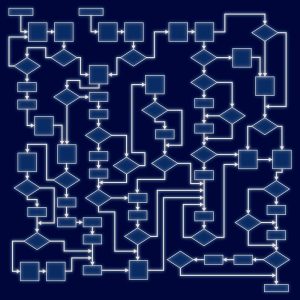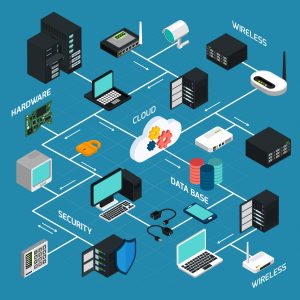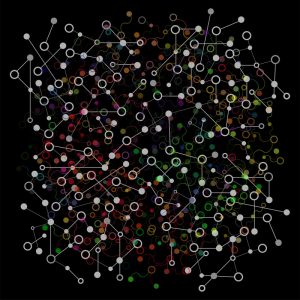Active in vital, ground-breaking research, our faculty members are experts in their respective fields. We are involved in numerous research projects dealing with the application of information technologies in various types of organizations such as business, health, the environment and education.
Our research is largely interdisciplinary and contribute/teach in various graduate programs across York, including Computer Science, Mathematics, Physics, and the Master of Arts in Information Systems and Technologies (MAIST), which is housed in our School.

Business Analysis &
Management Information Systems
Information Technology is about people and their needs. Constructing software-intensive systems that satisfy human needs is as important and difficult as identifying what these needs really are in the first place. Research in areas such as Requirements Management, Systems and Business Analysis investigate systematic approaches, tools and techniques for understanding human needs and translating them into useful software-intensive systems.
Moreover, in the context of business organizations participants need to collaborate in complex ways to efficiently solve problems and generate value. How can technology assist this task? Research in Business Process Management, for instance, studies how humans and computer functions can efficiently co-ordinate their activities to achieve a desired result. But what is the right way to organize and utilize information technology and related services in an organization? The answer is far from simple.
Researchers in the School of Information Technology study various aspects of the above problems including the identification and analysis of non-functional requirements, the effectiveness of conceptual modeling languages for communicating and formalizing problems and designs as well as phenomena pertaining to the adoption and operation of software-intensive systems in modern organizations.
Specific Areas: Requirements Management, Requirements Engineering, Systems Analysis, Business Process Management, Conceptual Modeling.
People: Younes Benslimane, Luiz Marcio Cysneiros, Peter Khaiter
Enterprise Computing
Modern organizations are networks of heterogeneous human and artificial actors of often vast scale and complexity. Large varieties of interconnected computational objects - the Internet of Things- become more and more pervasive within and outside organizations forming complex ecosystems. At the same time, business organizations fiercely compete with each other to deliver value with the least possible cost and maximum possible quality and speed. They further demand agility and quick adaptation of their products and services to new environmental circumstances.
Researchers in these areas study how information technologies from infrastructure to application can be flexible and adaptable to optimize efficiency and adequacy for changing requirements. Cloud computing, intensely studied in the School of Information Technology, is an example of a technology that has brought about substantial agility and cost-efficiency in the IT world. Artificial Intelligence (AI) techniques for adaptation and reconfiguration of software systems has also enjoyed the attention of researchers in the School. At the same time the methodological approaches for taming the complexity of the enterprise and its transformations through the development of useful enterprise architectural structures interests School of IT researchers in various direct or indirect ways.
Specific Areas: Cloud Computing, Adaptive Systems, Systems Integration, Internet of Things, Business Processes, Enterprise Architecture, Enterprise Resource Planning.
People: Younes Benslimane, Stephen Chen, Luiz Marcio Cysneiros, Sotirios Liaskos, Marin Litoiu


Data Management Systems &
Data Analytics
Effective data management lies at the center of virtually every meaningful computing technology. Currently, a stunning amount of data are digitally produced and captured every second. With the advent of the Internet of Things (IoT), the amount is set explode. Developing technologies for dealing with these unprecedented scales is at the center of data management research.
In the School of Information Technology, significant research is conducted is in the area of Information Retrieval, where technologies for effectively identifying useful information in large amounts of data are developed. ITEC researchers also produce research in the general area of Data Mining, studying topics such as sentiment analysis, mining of spatio-temporal data, data envelopment analysis, and deep learning.
Specific Areas: Big Data, Data Analytics, Information Retrieval, Data/Web Mining, Machine Learning, Advanced Databases.
People: Marina Erechtchoukova, Peter Khaiter, Jimmy Huang, Zijiang Yang, Xiaohui Yu
Complex Systems & Decision Support
Complex systems can take many forms. From social networks to natural ecosystems, and from microscopic physical phenomena to markets and climate, the structure and behavior of complex systems can be difficult to model, analyze and predict. Computational modeling and analysis can often come to the rescue. Coming from diverse disciplines, and bringing a variety of approaches and tools, the work of several researchers in the School of Information Technology has the common end-goal of understanding and predicting complex systems.
At the same time, humans want to go one step beyond understanding. They want to intervene and design new or reconfigure and steer existing systems towards the attainment of goals. Decision support systems is one of the ways technology helps humans choose what steps to take. Researchers of the School of IT bring expertise in areas such as optimization, AI reasoning and domain-specific decision making specifically in the area of sustainability and natural resources .
Specific Areas: Modeling, Optimization, Process Simulation, Decision Support Systems, Sustainability and Natural Resources, Environmental Informatics, Computational Intelligence.
People: Radu Campeanu, Stephen Chen, Marina Erechtchoukova, Peter Khaiter


Financial Technologies
The ways by which humans arrange their economic affairs nowadays has become almost entirely reliant on information technologies. In addition to supporting traditional financial activities (e.g., on-line banking), IT has created ground for new financial innovation and has given raise to new financial practices and phenomena. Peer-to-peer and microlending, algorithmic and high-speed trading, AI assisted advising and financial decision making and crowdfunding are examples of such developments.
Researchers in the School of IT have recently started exploring these technologies. One ares is the application of advanced AI and statistical techniques for mining financial data, aiming at making informed financial decisions. Another area is the technologies that emerge from the cryptocurrency ecosystem, namely the blockchain technology, which is increasingly believed to have the potential to bring about a major disruption in the way humans arrange their economic and social affairs.
Specific Areas: Blockchain, Cryptocurrencies, Mining of Financial Data, Financial Decision Support.
People: Sotirios Liaskos, Zijiang Yang
